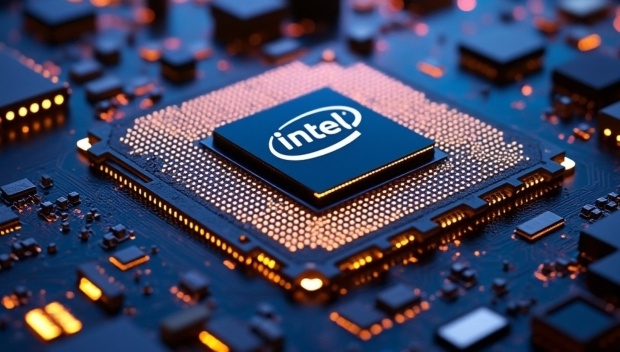Intel May Consider Splitting Off Its Foundry Business Amid 60% Stock Drop This Year
Sources say Intel is considering programs including splitting its chip design and foundry business and canceling some of its factory construction projects to address the company's current woes.
Intel, once a glamorous chip industry giant, is now mired in a quagmire of lackluster growth. Sources say the company is discussing with investment banks how to get through this difficult period.
According to sources familiar with the matter, Intel and Morgan Stanley, Goldman Sachs and other investment banks to discuss the program includes split chip design and foundry business, as well as cancel part of the factory construction project. It is expected that these programs will be presented at Intel's board of directors meeting held in September.
Been discussed in the program, the more striking should be Intel may be foundry division split or sold.
Intel's foundry business unit mainly for external customers to manufacture chips. Has been, the department is the current CEO Pat Kissinger (Pat Gelsinger) as the key to restore Intel's position in the chip maker. Kissinger hoped that Intel could use the division to compete with another chip foundry giant, TSMC.
However, as the company pushed hard into the foundry business, the company's expense costs have been rising and profit margins have been squeezed. Earlier this year in August, Intel disclosed in its second-quarter results report that revenue from its foundry business amounted to $4.3 billion, an increase of 4 percent year-on-year and a decline of 1 percent from the previous year. Foundry business operating loss further expanded to 2.8 billion U.S. dollars, operating margin of -65.5%.
The foundry business, which was given high hopes, did not take off, resulting in Intel's entire earnings report also became less good.
The data showed that Intel's second-quarter revenue fell 1% year-on-year to $12.83 billion, below analysts' expectations of $12.94 billion. Net loss of $1.6 billion, compared with a profit of $1.5 billion in the same period a year earlier, turning a year-on-year profit into a loss, with adjusted earnings per share of only $0.02.
For the third quarter guidance, Intel expects revenue to be between $12.5 billion and $13.5 billion, below analysts' expectations of $14.39 billion. At the same time, Intel expects to report an adjusted loss of $0.03 per share for the third quarter, compared to analysts' expectations of a profit of $0.3.
With earnings under pressure, Intel was forced to announce a $10 billion cost-cutting program. Intel said the company will lay off about 15% of its workforce, affecting about 15,000 jobs; while suspending the dividend, which has been paid since 1992, for the first time in the company's 32-year history.
On Aug. 2, the day after Intel released its quarterly results, announced the layoffs and suspended its dividend, its stock plunged 26 percent. Subsequently, its shares have remained depressed.

S&P Global recently placed Intel's credit rating on its “watch” list, stating, “While these cost-cutting measures, including significant reductions in capital expenditures, could alleviate some of [Intel's] short-term cash flow challenges, it is not clear that they will be sufficient to maintain the competitiveness and healthy growth of its business. competitive and achieve healthy growth.”
Adding insult to injury, last week one of Intel's directors, Lip-Bu Tan, abruptly announced his resignation from the board.Lip-Bu Tan, a veteran of the semiconductor industry, is one of the few directors on Intel's board with industry knowledge and experience, having been on board for just two years.
On Thursday, Kissinger told investors at the Deutsche Bank Technology Conference, “The last few weeks have been very tough.” He said Intel tried to clearly articulate its next move in its earnings report, but apparently the market didn't react positively, “and we understand that.”
So far this year, Intel's shares have fallen about 60 percent, while the U.S. Philadelphia Semiconductor Index has risen 20 percent. The company's market capitalization has also shrunk to about $86 billion, falling out of the world's top 10 chipmakers.
However, in the case of market sentiment is so fragile, Intel should not act rashly.
People familiar with the matter said Intel is more likely to take some less radical measures, such as postponing part of the expansion plan. Informed sources also emphasized that Intel has not yet taken major initiatives, negotiations are still in the early stages.
·Original
Disclaimer: The views in this article are from the original Creator and do not represent the views or position of Hawk Insight. The content of the article is for reference, communication and learning only, and does not constitute investment advice. If it involves copyright issues, please contact us for deletion.